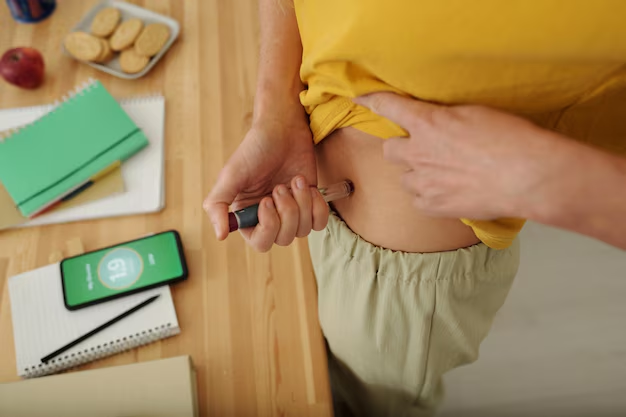Your Guide to Can Diabetes Be Reversed
What You Get:
Free Guide
Free, helpful information about Diabetes FAQ and related Can Diabetes Be Reversed topics.
Helpful Information
Get clear and easy-to-understand details about Can Diabetes Be Reversed topics and resources.
Personalized Offers
Answer a few optional questions to receive offers or information related to Diabetes FAQ. The survey is optional and not required to access your free guide.
Discovering Possibilities: Can Diabetes Be Reversed?
In a world where health concerns loom large, one question seems to persistently find its way into discussions: Can diabetes be reversed? This question is not just one of medical curiosity but a beacon of hope for millions worldwide. Understanding the nuances and potential of reversing diabetes can pave the way to healthier lives and financial relief. Let’s explore this critical topic.
Understanding Diabetes: Type 1 vs. Type 2
Diabetes manifests in two primary forms: Type 1 and Type 2. While Type 1 diabetes is generally regarded as a genetic condition with no current cure, Type 2 diabetes presents a more hopeful scenario. Type 2 diabetes develops when the body becomes resistant to insulin or when the pancreas fails to produce enough insulin. This form of diabetes is often linked to lifestyle factors, making it the focal point in discussions of reversal.
The Reversal Potential of Type 2 Diabetes
For Type 2 diabetes, reversal is not only a possibility but a documented reality for many. Primarily, lifestyle changes form the cornerstone of reverting this condition. Here are key strategies that have shown significant promise:
- Dietary Adjustments: Reducing processed foods, sugary beverages, and increasing intake of whole foods can dramatically impact blood glucose levels.
- Exercise: Regular physical activity can help increase insulin sensitivity, making the body's cells more receptive to insulin.
- Weight Loss: Shedding excess weight, particularly around the abdomen, can lead to significant improvements in glycemic control.
- Medication: While not a reversal in itself, some medications can facilitate the process by effectively managing blood sugar levels during the transition.
Recent studies suggest that through these changes, some individuals achieve normal blood sugar levels without the need for medication, maintaining this state for years. However, it’s imperative to note that what works for one person may not work for another, and continuous medical guidance is crucial.
Financial Considerations: The Hidden Side of Diabetes Management
The journey to diabetes reversal involves not just physical changes but also financial considerations. Managing diabetes comes with its own set of expenses, from healthcare appointments to prescriptions and monitoring devices. Here's how financial resources can assist in this process:
- Government Aid: Programs like Medicaid offer coverage for necessary medical supplies and medications.
- Financial Assistance: Many pharmaceutical companies provide discounted or free medications to those who qualify based on income.
- Support Groups: Joining diabetes support groups can offer free resources, from dietary guidelines to exercise programs tailored for diabetes management.
- Educational Workshops: Non-profit organizations often host free workshops aimed at educating patients about lifestyle changes for managing and potentially reversing diabetes.
Looking Beyond: Exploring Broader Support Systems
While managing diabetes is vital, exploring the wider array of support systems can be equally empowering. Financial burdens can often bog down progress, but several avenues offer relief:
- Debt Relief Options: Concealed medical debts can be tackled with programs specifically designed for healthcare-related financial assistance.
- Credit Card Solutions: Low-interest medical credit cards can allow for medical expenses without overwhelming interest rates.
- Educational Grants: For those interested in delving deeper into health education or training, scholarships and grants are available to promote further learning in the field of diabetes management.
Pathways to Financial Freedom and Health
The road to potentially reversing diabetes, particularly Type 2, involves a multi-faceted approach emphasizing health and informed financial choices. While dedicated lifestyle enhancements lead the way, understanding and utilizing financial assistance programs can significantly alleviate the burden on patients. Here’s a snapshot of supportive resources:
- 🏥 Medicaid/Medicare: Essential healthcare coverage.
- 💊 Pharmaceutical Independence Programs: Access to affordable medication.
- 🤝 Support & Education Groups: Community-based resources and information.
- 💳 Medical Credit Options: Manage expenses with minimized interest.
- 📚 Educational Funding: Grants for advancing knowledge in healthcare topics.
Embrace these resources, and move forward with a proactive, informed approach for a healthier, more financially secure life.
What You Get:
Free Diabetes FAQ Guide
Free, helpful information about Can Diabetes Be Reversed and related resources.

Helpful Information
Get clear, easy-to-understand details about Can Diabetes Be Reversed topics.

Optional Personalized Offers
Answer a few optional questions to see offers or information related to Diabetes FAQ. Participation is not required to get your free guide.


